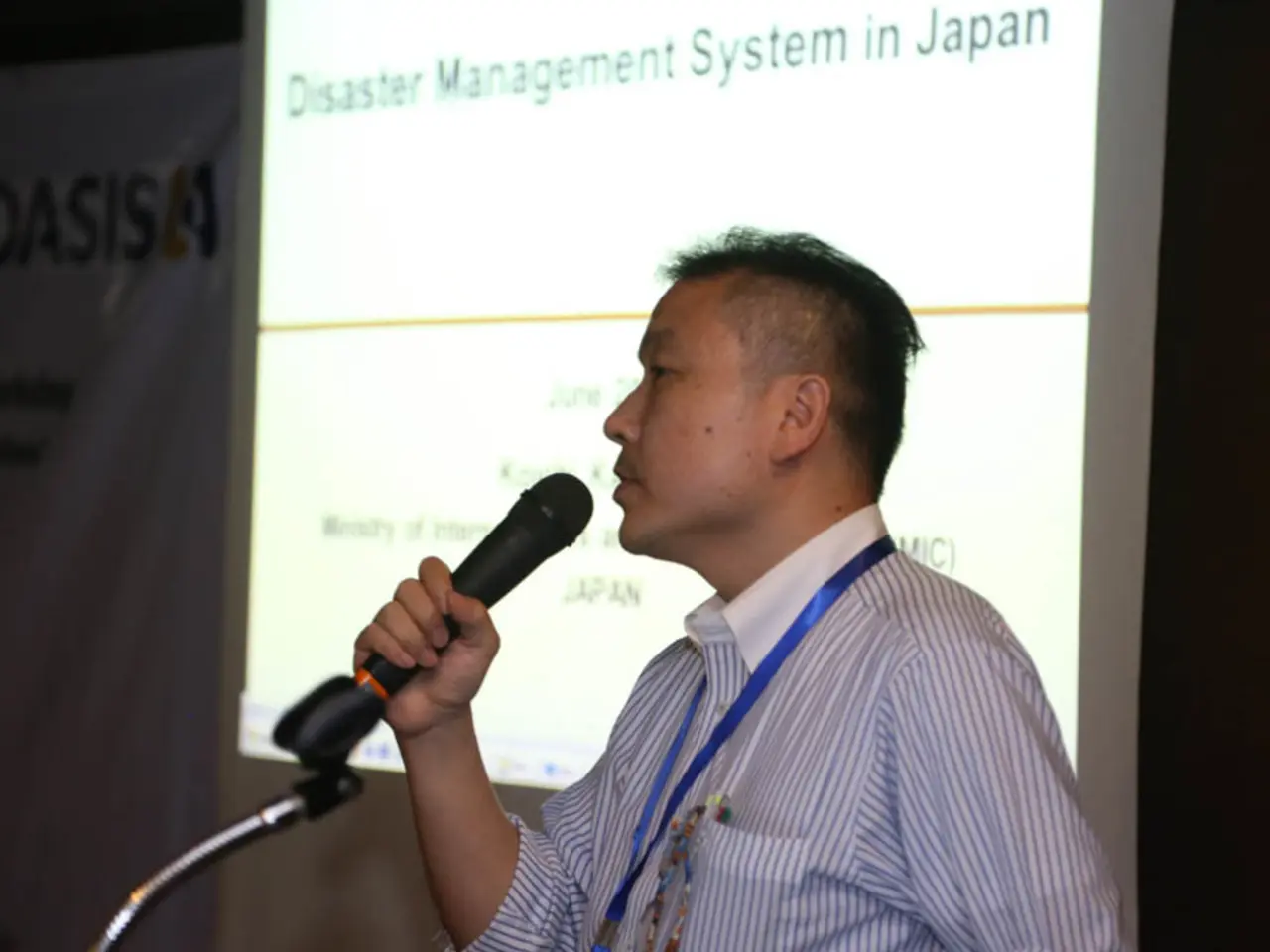Utilizing English for Managing Personal Crisis Situations
In the event of an emergency, clear and effective communication is crucial. For non-native English speakers, this can present a challenge. However, there are several strategies that can help bridge the language gap.
First and foremost, staying calm is essential. By remaining composed, you can ensure your messages are understood without repetition. In a crisis, it's natural to feel overwhelmed, but try to speak slowly and clearly, using simple, clear English.
Non-verbal cues can also be invaluable. Using gestures or writing down critical words can aid understanding, especially when verbal skills are limited. Technology, such as translation apps, can help communicate essential details, even in offline modes.
Requesting interpreter services from emergency helplines, if available, can facilitate clear communication. It's important to provide clear and specific information about your location, the nature of the emergency, and the condition of the person involved.
Training in emergency-related English can improve readiness. Focusing on key phrases and vocabulary, such as describing symptoms and locations, can help you feel more confident in handling emergencies. Role-playing emergency scenarios and assessing language proficiency related to emergencies supports better real-time communication under stress.
The presence of multilingual staff in healthcare and emergency settings is valuable to reduce miscommunication risks and provide culturally sensitive care. However, for individuals, combining clear basic English, non-verbal communication, interpreter requests, and technology-assisted translation is currently the most effective approach.
It's also recommended to store an "In Case of Emergency" (ICE) contact in your phone's directory. This allows emergency services personnel to quickly get in touch with someone who can make decisions on your behalf if needed.
Practicing emergency scenarios can help improve expressive and receptive language skills in a controlled environment. Preparation is key in using English for emergencies, even without complete mastery. This includes using language apps, listening to English podcasts, or joining English conversation clubs.
Effective communication techniques in emergencies involve clear articulation, appropriate use of tone, and confidence in speech to ensure urgency is conveyed. In emergencies where effective communication becomes a challenge, non-verbal cues, writing down keywords, or using translation apps can help convey messages.
Emergency services across the world often communicate in English, making it crucial to have a basic understanding of the language during emergencies. Key words and phrases for emergencies include "help," "emergency," "police," "ambulance," "fire," "I need help," "Please call," and "I am lost."
Familiarizing oneself with emergency vocabulary and phrases, and regularly practicing them, can help in building confidence and response time. Knowing common English phrases for medical emergencies, travel issues, and natural disasters can expedite receiving assistance and information.
Mastering English for emergency scenarios empowers individuals, ensuring they can handle crises with poise and expediency. Technology, such as translator apps and emergency alert apps, can aid in overcoming language barriers during emergencies. Knowing how to use apps like Google Maps for location sharing or emergency service apps specific to your locale can be beneficial in handling emergencies.
In summary, staying calm, using simple English, employing non-verbal cues, using technology, requesting interpreter services, providing precise details, preparing through emergency-specific language training, and using universal symbols are all effective strategies for non-native English speakers to communicate during personal emergencies.
Read also:
- Dual-function mattress offers both cooling and coziness at an affordable price.
- Krafton countersues Unknown Worlds, asserting that Subnautica 2 posed a threat of significant damage to their entire franchise, similar to the potential harm Kerbal Space Program 2 supposedly inflicted.
- Title Transformation: Utilizing the Shifting Dynamics of British Politics, Bernie Sanders' Potential Advantage
- Ontario falls short by a small margin in delivering the goal of four hours daily care for long-term care residents.







